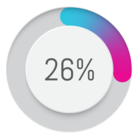What is the ADA, and how does it affect my business?The Americans with Disabilities Act prohibits discrimination against people with disabilities. Title III of the ADA prohibits discrimination in "places of public accommodation," such as hotels, bed and breakfasts, and inns.
Over the last 20 years, the Department of Justice has repeatedly stated that websites are "places of public accommodation," and are therefore required to be accessible to people with disabilities.
What is web accessibility?A website is considered accessible when people with disabilities are able to perceive, understand, contribute, navigate, and interact with it. In simple terms, an accessible website is one everybody can use.
What are the ADA requirements for lodging properties?According the ADA, any public accommodation or place of lodging has to do the following:
- Make sure people with disabilities can make reservations the same way as non-disabled guests.
- Describe the accessible features of a guest room in enough detail so people can determine if it fits their needs.
- Hold accessible rooms for reservation by guests with disabilities until all standard rooms of the same size and type have been sold.
- Remove accessible rooms from inventory once they're booked – overbooking accessible rooms is prohibited.
- Guarantee that the customer receives the specific accessible room type they reserved. This covers bed type, number of beds, bathroom fixtures, etc
How can I check my website for accessibility issues?
We provide a range of tools and support options to help you monitor and improve your website accessibility. Our website builder offers ADA tools to help you identify and address issues, and our website team is available for assistance. Additionally, you can utilize tools like Google Lighthouse to identify potential accessibility concerns.
What are the most common accessibility issues on websites?While the WCAG has 86 success criteria, the three most common issues are:
- Alt text for images
- Empty text fields
- Color contrast
What is WCAG, and why is it important?WCAG, or Web Content Accessibility Guidelines, is a set of accessibility standards and instructions that have become the de facto standard for making digital content accessible.
The latest version of WCAG, updated in 2023, is WCAG 2.2 and it has 86 success criteria. It's important to keep in mind that while "WCAG compliant" has become a common term when talking about digital accessibility, they're not legally binding. WCAG isn't a law, it's just a roadmap. The WCAG has four main categories:
- Perceivable content
- Operable content
- Understandable content
- Robust
What is the Unruh Civil Rights Act and how does it affect my website?
The Unruh Civil Rights Act is a California law that requires businesses to grant people with disabilities equal access to their services and facilities, including websites. If your business operates in California, it's crucial to ensure your website is accessible to individuals with disabilities to comply with this law. Failing to do so can lead to legal consequences, including fines and potential lawsuits.
How does ADA compliance affect my website?
While the ADA certainly affects your stairways and parking lots, it also affects your website. Most complaints revolve around visibility impaired individuals and their ability to use screen reader tools with websites.
How does ResNexus websites help with ADA compliance?We perform several audits to help you meet WCAG AA standards; but we can do more to protect you and your business, all while helping you reach a wider audience.
What's the difference between the ADA, WCAG, and Unruh?- ADA: Americans with Disabilities Act. This law passed by Congress in the 1990's, prohibits discrimination against people with disabilities.
- WCAG: Web Content Accessibility Guidelines. A set of accessibility guidelines that have become the de facto standard for digitally accessible content. The Department of Justice recommends all websites follow these guidelines.
- Unruh Civil Rights Act: This is a California law that states businesses must grant people with disabilities equal access to their services and facilities. This includes making sure websites are accessible to the blind.
How does the ADA assess digital accessibility?The ADA doesn't have specific criteria for accessibility for websites. This is why the industry – along with the Department of Justice – recommends adhering to the latest version of WCAG.
What's the risk of non-compliance?The non-compliance risk of website accessibility laws – particularly the Unruh Civil Rights Act in California – has increased significantly in recent years. Under California law, sites found in violation of the Unruh Civil Rights Act are liable to pay $4000 in damages per violation. On top of that, violators are also faced with expenses in additional legal fees, time, and a damaged reputation that can hurt your business.
Are there exemptions for ADA compliance?There are a few exemptions from ADA compliance. The two most common include properties that have 5 rooms or less, but you have to live on the property for this to apply. The second is with registered historic properties, where adding accessible features are either impractical or would be damaging to the property. Make no mistake, regardless of what your physical property looks like, no one is exempt from having accessible websites.
How can I defend my business from lawsuits?This is a big question, and it deserves a big answer. We have a lot to say about this topic in our webinar "
ADA Compliance: A Good Offense is a Good Defense." There's a lot you and your website can do to keep your business safe, including adhering to WCAG standards, regular accessibility audits, and making sure you've included plenty of pictures and descriptions of your property's ADA measures to OTAs.
How can I improve my website's accessibility?With rising lawsuits and evolving laws, it's important to be proactive in making sure your website is accessible to everyone. While you can always start by conducting audits, implementing fixes, and running continuous tests, we think it's easiest to build accessibility into the design from the beginning.
Legal Disclaimer:
This website, operated by ResNexus, provides general information related to ADA compliance, web accessibility, and related topics. The information presented is not legal advice, and users should not consider it as such. While we strive to provide accurate and up-to-date information, we do not guarantee the accuracy, completeness, or reliability of the content.
ResNexus may include links to third-party websites or content for informational purposes. We are not responsible for the accuracy or reliability of such third-party information.
The use of this website is at your own risk. We make no warranties or guarantees regarding the performance, availability, or suitability of the website.
ResNexus and its contributors are not liable for any direct, indirect, incidental, consequential, or punitive damages arising from your use of the website or reliance on its content. Users are responsible for their use of the information presented on this website, and we recommend consulting legal professionals for specific legal matters.
ResNexus reserves the right to modify this disclaimer at any time, and it is the user's responsibility to review and understand the current disclaimer.
The website's content is protected by copyright and trademark laws. All rights are reserved.




